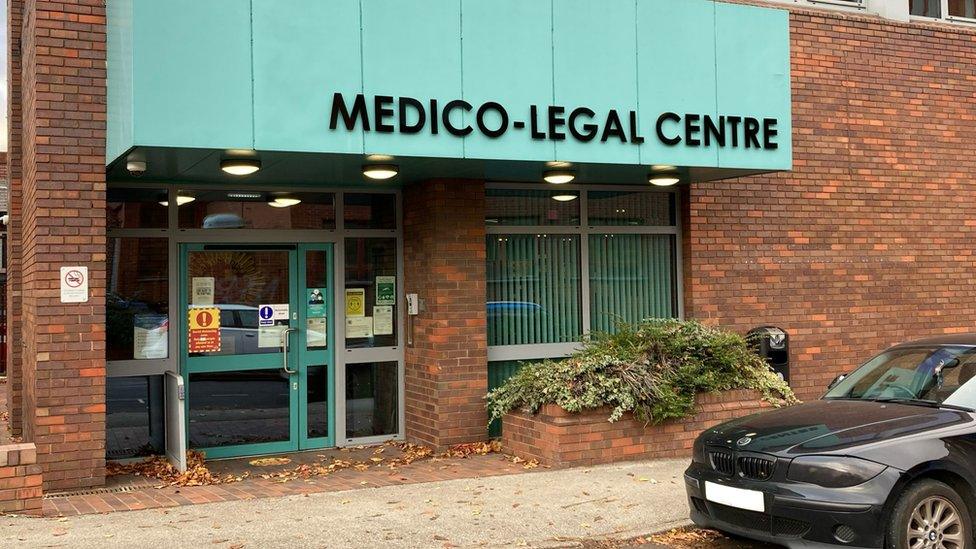Defibrillator in wrong mode before Kirsty Thain's death, inquest hears
- Published

Kirsty Thain had been detained under the Mental Health Act, the inquest heard
A defibrillator using the wrong setting had been used on a woman minutes before she went into cardiac arrest, an inquest into her death has heard.
Staff at a psychiatric hospital in Barnsley had called an ambulance for Kirsty Thain, 36, from Wakefield, after she started choking on 9 July 2020.
They had used the defib in a way which could have given Mrs Thain a shock when her heart was in a "non-shockable rhythm", a paramedic told the jury.
The inquest will continue on Thursday.
Mrs Thain had voluntarily admitted herself to a psychiatric hospital in Wakefield at the start of 2019, before moving to Kendray Hospital in Barnsley in October of the same year while detained under the Mental Health Act, the inquest had earlier been told.
The court heard how Mrs Thain had a history of attempted chokings before her death.
She had become "obsessed with ending her own life", assistant coroner Alexandra Pountney said.

The inquest into Mrs Thain's death is being held at the Medico-Legal Centre in Sheffield
The inquest jury was told that on the day of her death, Mrs Thain had started choking on a chip butty.
She was moved to her bedroom where first aid, including two shocks from a defibrillator, was given by staff.
Paramedic Wayne Corbett, from Yorkshire Ambulance Service, told the inquest that when he arrived at the scene, he removed "two large pieces of bread" from Mrs Thain's airway using forceps.
After confirming she had a pulse despite not being responsive, he identified her heart was "in a non-shockable rhythm" and started performing CPR.
It was only after Mrs Thain was declared dead 40 minutes later and the defibrillator had printed out a summary of events that Mr Corbett realised the machine was in another mode and had already delivered two shocks.
He explained to the inquest jury that the defibrillator "can be put into another mode where the machine will read what [heart] rhythm the service user is in and it will advise you to carry CPR".
"Does that mean that those two shocks may have been given against an un-shockable rhythm, we just don't know?" Ms Pountney asked.
Mr Corbett said that was correct, adding that giving the shocks could lead to "further complications" and "could hinder the outcome" with the patient.
The inquest into Mrs Thain's death is expected to conclude on Thursday.

Follow BBC Yorkshire on Facebook, external, X (formerly Twitter), external and Instagram, external. Send your story ideas to yorkslincs.news@bbc.co.uk, external.
- Published12 February 2024
